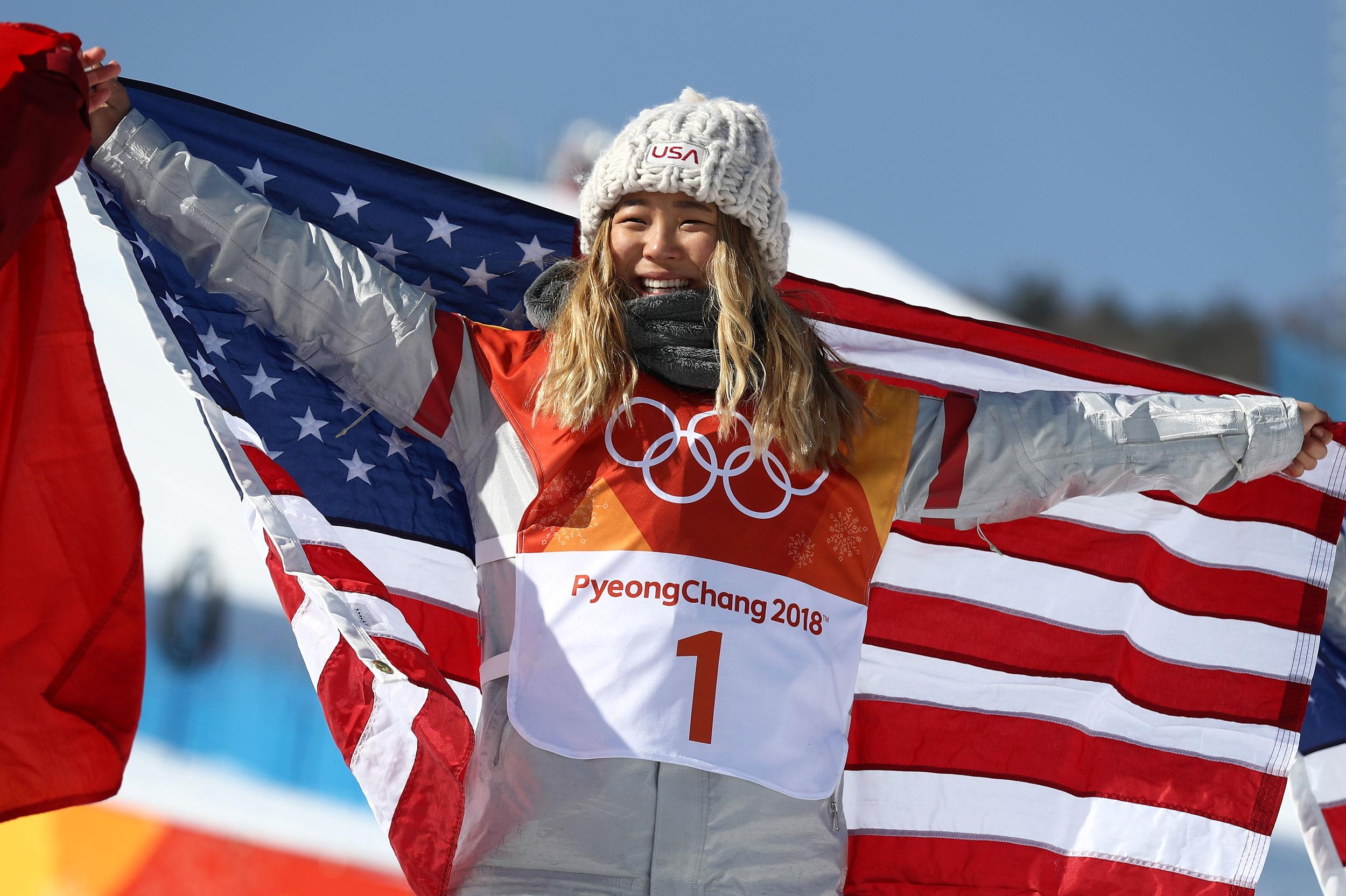
The Winter Olympics are not a superstar-driven vehicle. They’re an amalgam of sports which nobody follows and sports which nobody understands. Pride, nationalism, spectacle, and good old marketing dollars power us through two weeks of speed skating, skeleton, and cross-country skiing in the hopes that we will buy into the competition and get excited about things like Sunday’s Miracle on Snow.
Personalities at the Winter Games are few and far between. For Americans, only Shaun White and Lindsey Vonn, perhaps the top figures in the histories of their respective sports, were household names when the opening ceremonies took place last week. Now a name will need to be added to the list. Chloe Kim is a bona fide headliner.
Kim, who won gold on Monday night in the women’s halfpipe, is a promoter’s dream. She’s a smiley 17-year-old who tweets lame jokes and makes cracks about breakfast sandwiches during Olympic competition, a profile that will surely go over well on the post-Pyeongchang talk-show circuit. She’s nearly poetically perfect for this cultural moment, a trilingual kid of Korean heritage who grew up in both California and Switzerland and who, without having to say a word, shows that there are infinite ways to be an American. But all of that will be parsed over the weeks and months and years to come. For now, it’s fine to appreciate that Chloe Kim just shreds.
Sports determined by judges are difficult. If you’re not a gymnast or a figure skater or a snowboarder, barring clear failure, you probably don’t know what differentiates good, very good, and very, very good routines. Part of what has been most thrilling and immediately appealing about White is that he flies higher than his competitors. He qualifies in top position, lets his opponents make their runs, and then turns the gravity down. His airs are so clearly bigger, so much more effortless than those of his competitors, that even the untrained eye can understand why the judges award him the best scores.
Kim’s first run on Monday did the same thing. She looked to be competing under different physical laws than the rest of the field. She landed each of her tricks on her first run, the one usually reserved for riders’ more conservative maneuvers, and earned a 93.75, good for first, easily, after the first batch of attempts.
It turns out that run would be as good as gold. The second-place finisher, China’s Liu Jiayu, would, in the best of her three runs, manage just an 89.75. Kim watched as her competitors repeatedly failed to hit her mark, with rider after rider attempting tricks that seemed beyond their capabilities, trying for airs that they could not handle. They’d stretched themselves too far trying to match Kim’s dominant display. So, as White did in 2006 and 2010, Kim earned a victory lap, a last run after all of her competitors had run out of attempts. And, as White did in Vancouver, Kim attempted her most dynamic slate of tricks—and hit them. She landed back-to-back 1080s and topped her original tally, posting a winning score of 98.25.
We’ve recently been in a nostalgic sporting age. We’re repeatedly rewarded by champions who refuse to grow old. We exist in the Age of the Living God, which is a unique and mind-bending experience, but watching greatness rise is itself a thrilling journey.
Throughout the halfpipe finals, my colleague Donnie Kwak noted that most runs were not particularly entertaining and that the commentators themselves seemed unsure of how to engage the audience and defaulted to mentioning Kim in some shape or form every few moments. This was true—Kim’s dominance made the rest of the competition a rather dull affair. But the total evisceration of competition is how an individual transcends the sport. It’s how the best Olympic athletes become more than once-in-four-years faces on a promo for NBC. Kim is now on the Phelpsian path. Her face will be everywhere in Beijing in 2022, and maybe more importantly, her name will start to be recognizable in the interregnum. She’s not a Living God, but all legends need to start somewhere.
